Advocate General questions whether FIFA Regulations are compliant with EU Law: RSTP & football transfer system in review (Part 2)
Published Wednesday, 11 September 2024.
Advocate General questions whether FIFA Regulations are compliant with EU Law: Violation of freedom of movement of workers? (Part 4)
Published Wednesday, 11 September 2024.
Advocate General questions whether FIFA Regulations are compliant with EU Law
Published Wednesday, 11 September 2024.
Growth in multi-club ownership: Is it time to strengthen global regulations?
Published Wednesday, 21 August 2024.
The evolution of betting and match-fixing regulation in Italian football – key regulations and cases
Published Tuesday, 06 August 2024.
A guide to rights protection at major sporting: Part 3- surprises & over enforcement
Published Tuesday, 23 July 2024.
A guide to rights protection at major sporting events: Part 1 - identify rights & managing risk
Published Tuesday, 23 July 2024.
Sport Disputes And Disciplinary Proceedings – Annual Review 2023/24
Published Monday, 17 June 2024.
An analysis of how multi-club ownership is regulated in France
Published Thursday, 06 June 2024.
Circular no. 1887 - Amendments to the Regulations on the Status and Transfer of Players (RSTP) concerning provisions regarding female players and coaches, the extension of Annexe 7 and the international transfer process for football
TO THE MEMBER ASSOCIATIONS OF FIFA
Circular no. 1887
Zurich, 31 May 2024
Amendments to the Regulations on the Status and Transfer of Players (RSTP) concerning provisions regarding female players and coaches, the extension of Annexe 7 and the international transfer process for football
Dear Sir or Madam,
We are pleased to inform you of several amendments to the Regulations on the Status and Transfer of Players (RSTP), which were approved by the FIFA Council at its meeting on 15 May 2024. The following paragraphs briefly set out the amendments concerning:
(a) provisions regarding female players and coaches;
(b) the extension of Annexe 7 to the RSTP to continue addressing the exceptional situation deriving from the war in Ukraine; and
(c) the international transfer process for football – Annexe 3 to the RSTP.
(a) Provisions regarding female players and coaches
Based on the FIFA Council’s mandate of 14 March 2023 to explore possible further regulatory steps to protect the well-being of female players, the FIFA administration undertook a detailed assessment of the current labour conditions regarding pregnancy and maternity for female professional players with the aim of exploring objective additional regulatory measures.
The amendments and additions to the RSTP in respect of provisions regarding female players and coaches relate to the implementation of the mandated areas and are aimed at ensuring clarity within the current regulatory framework. Furthermore, an equal protection regarding pregnancy and maternity (where appropriate) has been expanded to female coaches. A further objective is the appropriate implementation of these provisions at national level.
In particular, the amendments concern the definitions of the terms “maternity leave”, “adoption leave”, “family leave”, as well as article 1 paragraph 3 a); article 6 paragraph 3 c) and d); article 18 paragraph 7; article 18quater paragraphs 1, 2, 3, 4, 5 and 6; article 18quinquies (new); article 1bis paragraph 11 of Annexe 1 (new); article 1 paragraph 5 of Annexe 2, article 1 paragraph 5 of Annexe 6. These latest amendments focus on:
- • reflecting the reality of female football and promoting inclusivity by extending the rights and protection to adoptive parents as well as non-biological mothers;
- • recognising the physical, psychological and social dimensions in the event of an inability to provide employment services due to severe menstruation or medical complications relating to pregnancy by providing for related rights; and
- encouraging associations to facilitate attachment and emotional balance for female players with their families while on international duty with their national teams.
(b) Extension of Annexe 7 to the RSTP to continue addressing the exceptional situation deriving from the war in Ukraine
As a consequence of the war in Ukraine, on 7 and 16 March 2022, the Bureau of the Council decided to temporarily amend the RSTP to provide urgent legal certainty and clarity on a number of important regulatory matters.
The decisions of the Bureau of the Council, communicated via circular nos. 1787 and 1788, set out the regulatory principles in the form of a temporary annexe to the RSTP (Annexe 7) entitled: Temporary rules addressing the exceptional situation deriving from the war in Ukraine.
Subsequently, on 20 June 2022, the Bureau of the Council decided to extend the temporary amendments to Annexe 7 to the RSTP until 30 June 2023, with minor modifications. The decision was communicated via circular no. 1800, dated 22 June 2022.
On 21 May 2023, the Bureau of the Council approved further temporary amendments to extend and adapt Annexe 7 to the RSTP until 30 June 2024 with the objective being to continue assisting players, coaches and clubs impacted by the war in Ukraine, while at the same time aiming to strike a reasonable balance between all interests at stake and avoiding abuse. These amendments have been communicated via circular no. 1849.
The ongoing situation with the war in Ukraine has resulted in the need to further clarify the application of Annexe 7 to the RSTP, in particular its application beyond 30 June 2024.
The related amendments to Annexe 7 to the RSTP concern the following provisions: article 1 paragraph 2 a) and b); article 2 paragraphs 1 and 2; article 7 paragraph 1. These latest amendments focus on:
- a further temporary extension of the right of foreign players and coaches who have left the territory of Ukraine and Russia due to the conflict, and who might not wish to currently return in view of the situation, to unilaterally suspend their contracts with clubs affiliated to the Ukrainian Association of Football and the Football Union of Russia until 30 June 2025;
- maintaining the limitations on the scope of application of Annexe 7 to the RSTP that were introduced in May 2023 in order to prevent abuses and to ensure that players and coaches exercise their right to suspend their employment contracts in a clear and timely manner; and
- partially reintroducing the obligation to pay training compensation.
(c) The international transfer process for football – Annexe 3 to the RSTP
Annexe 3 to the RSTP establishes the general principles governing the use of the FIFA Transfer Matching System (TMS), the process for international transfers of players in the system and the enforcement of the relevant rules. It also sets the obligations of member associations, clubs and their users when using the system.
In this context, a minor technical amendment to the RSTP has been approved by the FIFA Council in order to reflect the obligation of clubs to also declare in TMS any amendments to previously agreed club-to-club payment terms in the context of an international transfer.
The amendment related to Annexe 3 to the RSTP concerns the following provision: article 12 paragraph 1 of Annexe 3.
Entry into force of the amendments to the RSTP
All the aforementioned amendments will come into force on 1 June 2024, with the exception of the amendment regarding Annexe 3 to the RSTP, which will come into force on 1 July 2024.
The revised edition of the RSTP, as well as explanatory notes concerning the new provisions regarding female players and coaches and an updated explanatory note on Annexe 7 to the RSTP are available on legal.fifa.com.
Please do not hesitate to contact Jan Kleiner, Director of Football Regulatory at
We thank you for taking note of the above and for informing your affiliated clubs accordingly.
Yours faithfully,
FÉDÉRATION INTERNATIONALE
DE FOOTBALL ASSOCIATION
“A big statement”: FIFA introduces measures to further protect female players and coaches
-
Female players and coaches to be provided with additional protections to their well-being
-
Jill Ellis said that women should not have to juggle their career and children
-
Protections unanimously endorsed by FIFA Council
Jill Ellis is speaking from personal experience when she talks about protecting the well-being of female players and coaches. The two-time FIFA Women’s World Cup™ winner remembers trying to coach a college team after adopting her three-month-old daughter, and the difficulties of trying to juggle the two roles.
“(A football career) shouldn’t be exclusive of being a mum or raising a child, it should be inclusive of that,” she said. “If I didn’t have support around me, I wouldn’t have had the ability to do that and maintain my career.”
FIFA, however, has been listening to the concerns of women in the game and, following thorough discussions with key stakeholders and a previous set of landmark reforms, has moved to further protect their well-being by implementing changes to the Regulations on the Status and Transfer of Players (RSTP) that will enter into force on 1 June 2024.
Approved by the FIFA Council in May 2024, these changes will extend the rights and protections to adoptive parents as well as non-biological mothers. They will also recognise the physical, psychological and social dimensions in the event of an inability to provide employment services due to severe menstruation, or medical complications relating to pregnancy, and member associations will be encouraged to allow female players to have contact with their families while on international duty.
“FIFA is committed to implementing a dynamic regulatory framework that is sound and suitable for the increasing needs of female players and coaches,” said FIFA Chief Legal & Compliance Officer Emilio García Silvero. “In order for the game to further flourish, it’s absolutely key that we have a holistic approach towards player well-being, including the legal aspects.”
“As a modern organisation, it’s FIFA’s duty to listen to the main actors and adapt its regulations to the ever more complex dynamics of professional football. We would like to thank all the stakeholders that have contributed to the drafting of these robust regulations, and look forward to seeing them being implemented and positively affecting the lives and careers of women in football.”
“I think it’s a big statement,” said Ellis, who led FIFA’s Technical Study Group at the FIFA Women’s World Cup 2023™ and coached the USA to Women’s World Cup titles in 2015 and 2019. “These are big steps and big strides to really normalise the life that we go through as women … that’s what we want to provide now at every level, the club level, the national team level – the opportunity for pro players to have the chance to be mums.”
The steps deliver on important points in Goal 2 of FIFA’s Strategic Objectives for the Global Game: 2023-2027, which describe the organisation’s commitment to exploring and implementing further safeguards for player and coach welfare.
Like Ellis, former Germany international Fatmire Alushi – a FIFA Women’s World Cup winner in 2007 – has first-hand experience of raising children while pursuing a football career. “I appreciate very much FIFA getting involved to protect pregnant women so that they can have a good feeling, enjoy their pregnancy, and can get support during and after the pregnancy,” said the mother of four.
FIFA Chief Football Women’s Officer Dame Sarai Bareman said the new measures recognised that the players are the main stakeholders. “They are the ones who are on the field, who are playing the sport, they’re training hard every day, really sacrificing a lot to entertain the fans and to deliver the beautiful matches that we see,” she said.
The measures also recognise that women have different biological make-ups, she said. “When you’re playing sport for a living, and in a professional environment, we have to factor in that the female menstrual cycle can also impact on your ability to deliver within your role. So, it’s important that we protect … those that are affected by their menstrual cycles in a way that it doesn’t put at risk their employment situation with their club and, ultimately, their ability to earn money.”
Bareman welcomed the move to encourage more family contact for national team players. “In a FIFA Women’s World Cup, (a player) can potentially be away from her family for five or six weeks … and that can have a big toll on the player, mentally, but also on the child.
“So, encouraging the member associations to make provision or to allow for those mothers and parents to have the children with them during the camp, during the tournament, is a really important step which will support not only female players but all players in our sport.”
Regulations on the Status and Transfer of Players - June 2024 edition
Explanatory Note on Annexe 7 to the Regulations on the Status and Transfer of Players
FIFA Disciplinary Committee sanctions the Equatorial Guinean Football Association and the player Emilio Nsue López on grounds of ineligibility
The FIFA Disciplinary Committee has rendered its decisions in relation to proceedings opened against both the Equatorial Guinean Football Association (FEGUIFUT) and the player Emilio Nsue López with regards to the latter’s participation in several matches of the national team of Equatorial Guinea, including two matches in the ongoing FIFA World Cup 2026™ preliminary competition, despite being ineligible.
After considering all elements brought before it, the FIFA Disciplinary Committee was comfortably satisfied that the player was ineligible and consequently decided to declare the matches of the FIFA World Cup 2026™ preliminary competition in which the player was fielded (namely Equatorial Guinea v. Namibia and Liberia v. Equatorial Guinea played on 15 November 2023 and 20 November 2023, respectively) lost by forfeit by Equatorial Guinea (by a score of 3-0).
In addition, the FIFA Disciplinary Committee imposed the following sanctions:
- a fine amounting to CHF 150,000 upon FEGUIFUT; and
- a six-month ban from playing for any representative team of any association upon the player Emilio Nsue López.
The FIFA Disciplinary Committee’s findings were notified today to the parties concerned. In accordance with the relevant provisions of the FIFA Disciplinary Code, the parties have ten days in which to request a motivated decision, which, if requested, would subsequently be published on legal.fifa.com. The present decisions remain subject to an appeal before the FIFA Appeal Committee.
Global stand against racism by the Member Associations of the 74th FIFA Congress
TO THE MEMBER ASSOCIATIONS OF FIFA
Circular no. 1884
Bangkok, 16 May 2024
Global stand against racism by the Member Associations of the 74th FIFA Congress
Dear Sir or Madam,
The time has come for football to unite to unequivocally commit as a global community to address the issue of racism in the game. Football can be proud of the fact that it so often sets an example for the rest of society, showcasing what is possible when the world comes together for a common cause. It is now incumbent upon us to leverage this unique ability for this particularly important cause for us and for future generations.
Given players are so often the central victims of this heinous act, FIFA has over the course of recent months undergone an extensive consultation process with current and former players, male and female, from all over the globe, all of whom are passionate about making a change.
Their views and input have resulted in a consolidated proposal for action. FIFA is now pleased to present this proposal to the 74th FIFA Congress on 17May 2024 in Bangkok, Thailand. The five pillars of action are outlined in annexe to this circular letter and comprise the following:
- Pillar 1 – Rules and sanctions
- Pillar 2 – Action on the field
- Pillar 3 – Criminal charges
- Pillar 4 – Education
- Pillar 5 – Players’ voice
Ahead of this agenda item at the 74th FIFA Congress, FIFA would like to share this proposal with all member associations as we look forward to standing together with them against racism.
Yours faithfully,
FIFA
Mattias Grafström
Secretary General
Pillar 1 - Rules and sanctions
"We, together united as global football, will make racism a specific offence with mandatory inclusion in the individual Disciplinary Codes of all 211 FIFA Member Associations, differentiating racism from other incidents, giving acts of racism their own specific and severe sanctions, including match forfeits."
Pillar 2 - Action on the field
"We, together united as global football, will pause, suspend and abandon games in cases of racism, introducing a global standard gesture for players to communicate racist incidents and referees to signal the implementation of the three-step procedure which will be made mandatory in all 211 FIFA Member Associations."
Pillar 3 - Criminal charges
"We, together united as global football, will push for the recognition of racism as a criminal offence in every country in the world, and where already an offence, will push for prosecution with the severity it deserves."
Pillar 4 - Education
"We, together united as global football, in recognition that no child is born a racist, will develop and promote educational initiatives together with schools and governments, to provide a future free of racism."
Pillar 5 - Players' voice
"We, together united as global football, will establish a new Players' Anti-Racism Panel composed of former players who will monitor and advise on the implementation of these actions around the world."
The need for FIFA to ensure that football federations set up National Dispute Resolution Chambers
Published Monday, 13 May 2024.
FIFA launches fourth edition of the Executive Programme in Sports Arbitration
-
The programme offers a guide to proceedings at the Court of Arbitration for Sport (CAS)
-
FIFA has long and varied experience of dealing with cases at CAS
-
Participants receive practical guidance and in-depth analysis of procedures
FIFA has launched the fourth edition of its programme which provides participants with a practical and theoretical guide to proceedings at the CAS.
Aimed at lawyers with an interest in sports law, in-house legal counsel of confederations, FIFA Member Associations, clubs, leagues and player unions, the Executive Programme in Sports Arbitration draws on FIFA's long and varied understanding of dealing with CAS cases.
FIFA is the international sports federation with the most experience of dealing with CAS procedures and has been involved in thousands of cases covering the whole spectrum of legal disputes, including disciplinary, anti-doping and contractual.
The programme offers a practical, personalised learning method, backed up by the theory and research that focuses primarily on proceedings and practical aspects before CAS, as well as exploring arbitration in other sports bodies. It consists of three modules, each lasting four days, which will take place in Miami, Buenos Aires and Zurich in the final quarter of 2024.
It will provide participants with:
-
An in-depth analysis of the different types of procedures and leading cases of CAS
-
Practical guidance in resolving disputes before CAS
-
An introduction to other sports-related arbitration models in sport
-
Mock hearings based on leading CAS cases
The various modules will be delivered by FIFA staff, independent lawyers, CAS arbitrators, in-house general counsel and executives of football institutions. Information about applications, which are open from 26 April until 28 June 2024, can be found at legal.fifa.com. Further details are available in the official brochure.
Sport And Commercial Law – Annual Review 2023/24
Published Friday, 08 March 2024.
Sport And Governance - Annual Review 2023/24
Published Tuesday, 05 March 2024.
The IFAB approves permanent concussion substitutes among several changes to the Laws of the Game
The IFAB approved several changes to and clarifications of the Laws of the Game relating to players in relation to permanent concussion substitutes, player equipment, fouls and misconduct, and penalty kicks during its 138th Annual General Meeting (AGM), hosted by the Scottish Football Association at Loch Lomond, Scotland.
Trials confirmed
Detailed protocols for three trials in domestic competitions below the top two tiers aimed at improving participant behaviour were approved, namely:
• Only a team’s captain being able to approach the referee in certain situations.
• The introduction of cooling-off periods to allow the referee to require teams to go to their own penalty area.
• Increasing the time limit for the goalkeepers holding the ball to eight seconds, otherwise possession will revert to the opposing team.
The current guidelines to temporary dismissals in youth and grassroots football were improved. Any potential wider application will only be considered once the impact of these changes have been reviewed.
The IFAB decided to extend FIFA’s trial where the referee publicly announces the final decisions and the reasoning after a video assistant referee (VAR) review or lengthy VAR check to other competitions. Participating competitions will require permission from The IFAB and will have to commit to following FIFA’s refereeing and technology guidelines.
Changes and clarifications for the Laws of the Game 2024/25
The next edition of the Laws of the Game, which will come into effect on 1 July 2024, will feature the following changes and clarifications:
• Law 3 (The Players): Additional permanent concussion substitutions to be a competition option in accordance with the necessary protocol.
• Law 3 (The Players) and Law 4 (The Players’ Equipment): Each team must have a team captain who wears an identifying armband.
• Law 4 (The Players’ Equipment): Players are responsible for the size and suitability of their shinguards, which remain a compulsory part of their equipment.
• Law 12 (Fouls and Misconduct): Handball offences that are not deliberate, and for which penalties are awarded, are to be treated in the same way as other fouls.
• Law 14 (The Penalty Kick): Part of the ball must touch or overhang the centre of the penalty mark, and encroachment by outfield players will be penalised only if it has an impact.
Although the changes will take effect from 1 July 2024, competitions starting before that date may implement them earlier or delay their implementation until no later than the start of the subsequent competition.
Other topics
FIFA confirmed that it would launch a global campaign to raise awareness of how to recognise the symptoms of concussion and treat it appropriately, while The IFAB also requested relevant medical data analyses to be provided to the subsequent AGM in line with the amendment to Law 3 regarding this topic.
In addition, members received an update on The FA’s trials with body cameras at grassroots level and with a ban on “deliberate heading” at U-12 level and below. The IFAB also received an update on the offside trial which has been undertaken at U-18 level in Italy, and agreed to further trials.
The AGM, which was chaired and hosted by the Scottish FA, was also attended by representatives from FIFA, The FA, the Irish FA, the FA of Wales and The IFAB administration. At the meeting, FIFA Secretary General ad interim Mattias Grafström was confirmed as the new chair of The IFAB’s Board of Directors.
FIFA Series international friendlies pilot project to commence in March 2024
-
FIFA to facilitate inter-confederation friendlies during March match window of even years
-
Algeria, Azerbaijan, Saudi Arabia and Sri Lanka will host and organise pilot project matches
-
Initiative aims to provide member associations with key playing opportunities
In line with the Strategic Objectives for the Global Game: 2023-2027 and following on from the decision taken by the FIFA Council in December 2022, FIFA will implement the pilot phase of the FIFA Series during the upcoming Men’s International Match Calendar window in March 2024. The FIFA Series will see world football’s governing body support its member associations in organising international friendly matches comprising four national teams from different confederations in a single host country. The initiative will provide member associations with a more regular opportunity to face national teams from other continents, which will serve to unlock technical development opportunities previously unavailable to many of them.
The FIFA Series will also provide the participating member associations with their own additional commercial opportunities and exposure. Ahead of the full roll-out in March 2026, the pilot project will run from 18 to 26 March 2024. The forthcoming edition of the FIFA Series will feature national teams from all six confederations, and future instalments are planned during every March international match window of even years.
“The FIFA Series is a really positive step forward for national-team football at global level,” said FIFA President Gianni Infantino. “Our member associations have been telling us for a long time now of their desire to test themselves against their counterparts from all around the world, and now they can do so within the current Men’s International Match Calendar. More meaningful matches will enable far more valuable footballing interaction for players, teams and fans, and will make a concrete contribution to the development of the game.”
The FIFA Series pilot phase in March 2024 will involve the following teams:
FIFA Series: Algeria
Algeria (CAF) Andorra (UEFA) Bolivia (CONMEBOL) South Africa (CAF)
FIFA Series: Azerbaijan
Azerbaijan (UEFA) Bulgaria (UEFA) Mongolia (AFC) Tanzania (CAF)
FIFA Series: Saudi Arabia A
Cabo Verde (CAF) Cambodia (AFC) Equatorial Guinea (CAF) Guyana (Concacaf)
FIFA Series: Saudi Arabia B
Bermuda (Concacaf) Brunei Darussalam (AFC) Guinea (CAF) Vanuatu (OFC)
FIFA Series: Sri Lanka
Bhutan (AFC) Central African Republic (CAF) Papua New Guinea (OFC) Sri Lanka (AFC)
Global football integrity experts to gather at first FIFA Integrity Summit in Singapore
-
Two-day event to take place in Singapore on 4-5 April
-
Participants to discuss the latest integrity developments
-
Focus on collaborative approach to tackle match manipulation
FIFA has invited the integrity officers of all 211 FIFA member associations and the six confederations to the first FIFA Integrity Summit, which will be held in Singapore on 4 and 5 April 2024 in collaboration with the Asian Football Confederation and the Football Association of Singapore.
The summit aims to update integrity officers on global integrity trends, share best practices, present the new FIFA Integrity Handbook and Education Roadmap, and explore relevant decisions from FIFA and the Court of Arbitration for Sport (CAS) regarding match manipulation.
FIFA remains steadfast in the fight against match manipulation through the implementation of dedicated integrity programmes in close cooperation with its member associations. Keynote speakers from FIFA, CAS and other professionals involved in combating match manipulation will contribute to fostering knowledge exchange.
For the agenda, click here.
Government interference in sport - why the ICC suspended Sri Lanka Cricket and what happens next
Published Friday, 02 February 2024.
FIFA publishes second CAS & Football Annual Report 2023
Today, FIFA has published the second edition of the CAS & Football Annual Report, a detailed document reflecting the activities of the Court of Arbitration for Sport (CAS) in football-related matters at the global level in 2023, and, particularly, in relation to appeals filed against FIFA decisions last year.
Article 57 of the FIFA Statutes recognises the jurisdiction of CAS to deal with appeals against final decisions passed by FIFA’s legal bodies. This provision gives football stakeholders (e.g. member associations, confederations, players, clubs, officials, coaches, agents, etc.) the possibility to have resolutions of FIFA, member associations, confederations and leagues reviewed by an independent arbitration tribunal.
As part of the constant efforts to increase the transparency of FIFA’s activities, the CAS & Football Annual Report 2023CAS & Football Annual Report 2023provides relevant information and statistics related to the numerous appeals that have been filed before CAS in football matters worldwide. It additionally offers a detailed description of the most relevant case law from CAS and the Swiss Federal Tribunal notified last year, as well as other useful information related to CAS’ activity in connection with football.
The CAS & Football Annual Report 2023 is available here or can be downloaded from legal.fifa.com.
FIFA introduces new regulatory framework for national dispute resolution chambers
-
FIFA Council approves the National Dispute Resolution Chamber Recognition Principles, incorporating the new National Dispute Resolution Chamber Standard Regulations
-
Landmark modernisation of the regulatory framework for national dispute resolution chambers, which was unchanged for almost two decades
-
Revised framework to provide clarity and legal certainty
FIFA has reached a key milestone in the modernisation of the regulatory framework for national dispute resolution chambers (NDRCs) following the approval by the FIFA Council in December 2023 of the National Dispute Resolution Chamber Recognition Principles, which incorporate the new National Dispute Resolution Chamber Standard Regulations.
The regulatory framework for NDRCs was unchanged for almost two decades, and it thus became increasingly evident that it no longer served the current needs of all football stakeholders.
This new regulatory framework for NDRCs has been thoroughly discussed with stakeholders from the professional game, whose expertise and commitment have been pivotal in the adaptation of the relevant framework.
The key objectives of the revised framework are to provide clarity and the necessary legal certainty with regard to jurisdiction, structure, applicable requirements and potential formal and permanent recognition by FIFA of existing NDRCs.
The new relevant regulatory framework consists of the National Dispute Resolution Chamber Recognition Principles, which establish, inter alia, the required standards for a national dispute resolution system to be recognised by FIFA and the revised National Dispute Resolution Chamber Standard Regulations, which are designed to assist member associations with the establishment of procedural rules to govern the organisation, composition and functions of an NDRC.
FIFA will continue improving the FIFA regulations in line with the Strategic Objectives for the Global Game: 2023-2027.
The National Dispute Resolution Chamber Recognition Principles and the accompanying Annexe (National Dispute Resolution Chamber Standard Regulations), the revised edition of the Regulations on the Status and Transfer of Players, as well as the Explanatory Notes on the New Regulatory Framework for National Dispute Resolution Chambers are available on legal.fifa.com.
National Dispute Resolution Chamber Recognition Principles
Explanatory Notes on the New Regulatory Framework for National Dispute Resolution Chambers
Legal battle for the creation of new sporting competitions – only the end of the beginning
Published Friday, 12 January 2024.
Advocate General questions whether FIFA Regulations are compliant with EU Law: Legal & factual context (Part 1)
Published Wednesday, 11 September 2024.
Advocate General questions whether FIFA Regulations are compliant with EU Law: Are they restrictive of competition? (Part 3)
Published Wednesday, 11 September 2024.
Advocate General questions whether FIFA Regulations are compliant with EU Law: Key takeaways (Part 5)
Published Wednesday, 11 September 2024.
Navigating dispute resolution for technical directors in football
Published Tuesday, 27 August 2024.
Expanding maternity rights in football: Analyzing FIFA's 2024 regulations for female players
Published Wednesday, 14 August 2024.
Olympic drone drama: How FIFA sanctioned the Canadian women’s football team for spying
Published Friday, 02 August 2024.
A guide to rights protection at major sporting events: Part 2 - educate, monitor & enforce
Published Tuesday, 23 July 2024.
More than just a number: how India is trying to tackle age fraud in sports
Published Friday, 12 July 2024.
Circular no. 1889 - Amendments to the FIFA Statutes, the Regulations Governing the Application of the Statutes and the Standing Orders of the Congress
TO THE MEMBER ASSOCIATIONS OF FIFA
Circular no. 1889
Zurich, 7 June 2024
Amendments to the FIFA Statutes, the Regulations Governing the Application of the Statutes and the Standing Orders of the Congress
Dear Sir or Madam,
The 74th FIFA Congress held in Bangkok on 17 May 2024 approved amendments to the FIFA Statutes, the Regulations Governing the Application of the Statutes and the Standing Orders of the Congress as proposed and shared with the member associations per circular no. 1882.
Those amendments align with FIFA’s overall strategic objectives, ensure that FIFA’s overall regulatory framework remains relevant and adapted to the changing circumstances within the global game and generally aim to protect the best of interests of football for the future.
These amendments are set out in the enclosed version of the FIFA Statutes, the Regulations Governing the Application of the Statutes and the Standing Orders of the Congress (May 2024 edition).
Entry into force
The new version of the FIFA Statutes will enter into force on 16 July 2024 (60 days after their approval at the 74th FIFA Congress), and will be available on legal.fifa.com and in the 2024 edition of the FIFA Legal Handbook.
We thank you for taking note of the above and please do not hesitate to contact Héctor Navarro Real, Head of Regulatory Governance and Compliance, at
Yours faithfully,
FÉDÉRATION INTERNATIONALE
DE FOOTBALL ASSOCIATION
Quarterly FIFA Data Protection and Cybersecurity in Sport Networking Event – Hybrid Event
Friday 21st June 2024
10 AM – 12 PM ET
4 PM – 6 PM CET
Our next FIFA Data Protection & Cybersecurity in Sports Networking Event is around the corner, and we would love for you to join us.
Event highlights:
- Expert insights: Trevor Hughes, CEO & President of the IAPP, will share his insights into the evolving privacy landscape in the USA, focusing on health data and minors.
- Industry perspective: Ashish Khanna, Senior Managing Director of the Verizon Cybersecurity Consulting Services, on how to interpret the evolving cyber threat landscape through current incident trending and geopolitical perspective for the sports and entertainment sector.
Event format: This event allows for both in-person and virtual attendance, ensuring that you can join us from anywhere in the world. The in-person event will be held in Miami, Florida, USA.
How to register: Secure your spot by registering here. For those joining us in-person, please ensure to register your in-person participation to assist us in organizing the event.
For additional information or assistance with the registration process, please contact us at
We look forward to welcoming you, whether you join us online or onsite!
Best regards,
FIFA Data Protection & Cybersecurity Risk Team
Circular no. 1886 - Compliance with applicable regulations regarding release of players to representative teams
TO THE MEMBER ASSOCIATIONS OF FIFA
Circular no. 1886
Zurich, 31 May 2024
Compliance with applicable regulations regarding release of players to representative teams
Dear Sir or Madam,
FIFA is pleased to note that, with the recent approval of the Women’s International Match Calendar 2026-2029, combined with the prior approval of the Men’s International Match Calendar 2025-2030, there is now a clear and consistent framework for the mutually beneficial coexistence of representative-team and club football globally for the future. This hugely positive development allows all football stakeholders to plan responsibly and with sufficient certainty for the benefit of all involved.
A fundamental component of each International Match Calendar is its binding relationship with the release of players to representative teams, as set out in the FIFA Regulations on the Status and Transfer of Players (the “Regulations”). This legal framework clearly lays out predetermined rules around the timing of the mandatory release of players, where validly called up to representative teams by their respective member associations.
In doing so, this framework recognises the need to balance the rights and obligations of both clubs and representative teams, in order to ensure that the harmonious relationship between representative-team and club football continues.
With this in mind, FIFA notes with concern reports of an increasing trend of member associations engaging in “early call-ups” – in other words, arranging or requiring the arrival of players for representative-team duty before the start of the stipulated period of release as set out in the Regulations and therefore outside the release period, where there is no prior agreement with the releasing club in question.
FIFA would therefore like to strongly remind all member associations preparing for the upcoming international windows that call-ups in advance of the opening of the international window in question should not be undertaken unless otherwise mutually agreed between the member association and club concerned.
FIFA also draws attention to the fact that universal compliance with the Regulations and consistency in their application are critical for the long-term health and coexistence of representative-team and club football globally. In this regard, all involved parties and stakeholders must respect the rules and their obligations, in order for this long-standing and successful system to function as intended.
In recognition that there do exist individual cases with unique circumstances where an early release may be in the interest of all involved, FIFA of course promotes and encourages open dialogue in this regard, such that a clear agreement can be found that is acceptable to all parties. In such cases where an agreement is reached, we would take this opportunity to confirm that the cover provided by the FIFA Club Protection Programme as set out in circular no. 1852 will apply from the moment of release by the club in question, thereby providing insurance for the players in question when on duty with those representative teams in scope.
FIFA would like to thank you for your attention to the above and wishes all member associations the best in their preparations for the upcoming windows, as well as in any tournaments in which they are participating over the coming months.
Yours faithfully,
FÉDÉRATION INTERNATIONALE
DE FOOTBALL ASSOCIATION
Circular no. 1885 - Training compensation system for women’s football – financial data for calculation of training costs and categorisation of clubs
TO THE MEMBER ASSOCIATIONS OF FIFA
Circular no. 1885
Zurich, 30 May 2024
Training compensation system for women’s football – financial data for calculation of training costs and categorisation of clubs
Dear Sir or Madam,
On 17 December 2023, the FIFA Council approved the governing framework for a training compensation system for women’s football to encourage the development of youth players, protect the investment of training clubs and contribute to the competitive balance and sustainability of the women’s game.
In order to build and implement this system, it is essential to collect and analyse accurate financial data from clubs related to female players’ training costs. This will allow the correct categorisation of clubs and establishment of training compensation amounts which will be paid to beneficiary clubs when the system becomes active. In this regard, a survey has been produced to gather such data from your affiliated clubs.
Whilst the survey relates to training costs, professionalism and sporting indicators, other key questions have been included for correlation and benchmarking purposes. FIFA will not use this data for any other purpose, disclose it to any unauthorised persons or make it available in any other way.
Member associations are kindly requested to ensure that their affiliated clubs complete the survey, which is available at the following link: CLUB SURVEY which needs to be shared with your clubs directly.
Please kindly inform your affiliated clubs that once they start the online survey, they will need to enter all the requested data in one session and press submit to avoid losing any progress made. All survey responses must be received by 30 June 2024.
For any enquiries regarding the club survey, please contact Ignacio Toro from the FIFA Women’s Football Division at
Yours faithfully,
FÉDÉRATION INTERNATIONALE
DE FOOTBALL ASSOCIATION
Adjudicatory chamber of the Ethics Committee sanctions former and incumbent officials of the Bangladesh Football Federation
The adjudicatory chamber of the independent Ethics Committee has sanctioned five individuals as a result of their conduct whilst serving as officials of the Bangladesh Football Federation (BFF) as follows:
-
Abu Nayeem Shohag, former General Secretary of the BFF, has been banned from taking part in any football-related activity for a duration of three years and ordered to pay a fine amounting to CHF 20,000.
-
Abu Hossain, former Chief Financial Officer of the BFF, and Mizanur Rahman, former Manager – Operations of the BFF, have both been banned from taking part in any football-related activity for a duration of two years and ordered to pay individual fines amounting to CHF 10,000.
-
Abdus Salam Murshedy, Senior Vice-President of the BFF and chairman of the BFF Finance Committee, has been ordered to pay a fine amounting to CHF 10,000.
-
Imrul Hasan Sharif, Procurement and Store Officer of the BFF, has been ordered to undergo compliance training provided by FIFA and issued with a warning with respect to his future conduct.
The decisions were taken following separate hearings and upon careful analysis, in each of the applicable proceedings, of both the evidence provided before the adjudicatory chamber and the evidence collected during the investigations conducted by the investigatory chamber. The adjudicatory chamber was comfortably satisfied that the above individuals were involved with and/or participated in a number of transactions supported with false and/or falsified documentation, which were paid, or expected to be paid, with FIFA funds. As such, the individuals breached the following provisions of the FIFA Code of Ethics:
-
Abu Nayeem Shohag, Abu Hossain and Mizanur Rahman: article 14 (General duties), article 16 (Duty of loyalty) and article 25 (Forgery and falsification)
-
Abdus Salam Murshedy and Imrul Hasan Sharif: article 14 (General duties)
The individual grounds of the decisions were notified to the respective parties and published on FIFA.com today, the date on which the sanctions come into force.
Swiss Federal Tribunal rules on clause excluding FIFA & CAS jurisdiction through footballer’s employment contract
Published Wednesday, 15 May 2024.
The Algerian Football Federation (FAF) and Union Sportive Medina D'Alger (USM Alger) File an Appeal at The Court of Arbitration for Sport (CAS) Regarding the Shirts of RS Berkane
The Court of Arbitration for Sport (CAS) has registered the appeal filed by the Algerian Football Federation (FAF) and Union Sportive Medina d'Alger (USM Alger) (“the Appellants”) against the Confederation of African Football (CAF), the Royal Maroccan Football Federation (FRMF) and Club Renaissance Sportive de Berkane (RS Berkane) (“the Respondents”) against the decision taken by the CAF Appeals Jury dated 21 April 2024 (“the Challenged Decision”). This decision confirmed the earlier decision taken by the CAF Interclubs Committee, which validated the use of RS Berkane's shirts for the 2023/24 CAF Confederation Cup.
Together with their appeal, the Appellants filed an urgent request to immediately suspend the execution of the Challenged Decision. This request was rejected ex parte by the President of the CAS Appeals Arbitration Division on 26 April 2024.
In their appeal on the merits, the Appellants ask CAS to annul the Challenged Decision and to rule that the RS Berkane shirt, which the Appellants consider presents a political message, contravenes the laws of the game, CAF regulations and FIFA rules.
In relation to the arbitration procedure, the parties are currently exchanging written submissions and the arbitral panel that will be decide the matter is being appointed. Once constituted, the arbitral panel will issue instructions for the next phase of the proceedings, including the holding of a hearing.
At this juncture, it is not possible to give any further details on the timetable for this procedure.
Women’s football in 2024 - A year of growth and overcoming challenges
Published Thursday, 11 April 2024.
FIFA Anti-Doping Report 2023 published
-
FIFA’s annual Anti-Doping Report highlights commitment to clean football
-
FIFA’s anti-doping efforts in 2023 focused on the FIFA Women’s World Cup™, with 30% increase in total number of tests per team
-
Expanded testing capacities and educational support among all football confederations
FIFA published its Anti-Doping Report 2023 today, which covers FIFA’s efforts in the area from 1 January to 31 December 2023.
The report provides a quantitative overview of the testing procedures, while including further information about educational activities and further anti-doping support.
In 2023, the anti-doping programme mainly focused on the FIFA Women’s World Cup™, which saw an unprecedented increase in the number of tests carried out per participating team, with the 860 in- and out-of-competition tests conducted.
FIFA also expanded its testing capacities into the 2023 editions of the FIFA youth tournaments (the FIFA U-17 World Cup™ and the FIFA U-20 World Cup™), by stepping up out-of-competition doping control testing and introducing dry-blood spot testing also at the youth level.
Over the full year, FIFA’s testing efforts concluded in a total of 1,592 doping control tests across seven competitions, amounting to a total of 2,616 samples collected and which were analysed by 13 laboratories worldwide accredited by the World Anti-Doping Agency. Out of the samples collected, only one resulted in an adverse analytical finding, justified by a valid therapeutic use exemption.
Another key aspect of FIFA’s anti-doping programme was the collaboration with all the confederations through workshops and educational initiatives to enhance the anti-doping measures at their respective tournaments.
A particularly noteworthy example of this assistance is that FIFA signed a new agreement with Concacaf in 2023 to expand its programme. This has already resulted in eight times more doping control tests across Concacaf competitions compared to 2022. Through its ongoing collaboration with National Anti-Doping Organizations, FIFA provided additional educational support and enhanced local anti-doping infrastructure.
Anti-doping is one of FIFA’s central pillars to ensure that the game of football remains about sporting excellence, passion and team spirit.
Click HERE to download the full report.
FIFA hails IFAB decision on permanent concussion substitutes
-
Decision is a “very important” step, says Mattias Grafström, FIFA Secretary General ad interim and Chair of The IFAB’s Board of Directors
-
FIFA to launch global campaign to raise awareness of concussion symptoms
-
Decision is among several law changes confirmed at the 138th Annual General Meeting
The decision to make permanent concussion substitutes part of the Laws of the Game, taken by The IFAB at its 138th Annual General Meeting, was based on extensive medical research and out of concern for the welfare of the players.
"I think we’re not afraid to take on responsibilities and we really want to base all our decisions on data and also medical advice," said FIFA Secretary General ad interim Mattias Grafström following the meeting in Loch Lomond, Scotland. "This is also the basis [on which] we took the decision today on the permanent concussion substitution, which I think is a very important step moving forward," added Mr Grafström, who was confirmed as the new Chair of The IFAB’s Board of Directors.
FIFA also confirmed that it would launch a global campaign to raise awareness of how to recognise the symptoms of concussion and treat them appropriately, and that it would continue to invest in gathering more medical expertise about concussions.
“If there's any doubt about any player’s ability to continue due to a suspected concussion, then they should be taken off the pitch, they should be assessed properly,” said Noel Mooney, Chief Executive of the Football Association of Wales. “And the medical evidence we’ve got suggests there is no amount of time that will allow that to happen and let them still take part in the game. And fundamentally, the protection of the players has to come first.”
He added: “Why would you risk a player coming back onto the field who may be concussed because the only tests you can carry out at the side of a pitch won’t give you the concrete understanding of whether a player is concussed or not? So it’s very simple. If there’s any doubt about player safety, then the player should be removed from the pitch.”
The decision will be incorporated into the next edition of the Laws of the Game, which will come into effect on 1 July 2024.
FIFA publishes Professional Football Report 2023
-
Report provides detailed overview of men’s professional football worldwide
-
Close up on each of FIFA’s 211 Member Associations
-
Professional Football Landscape database offers valuable online resource
FIFA has published its Professional Football Report 2023 that provides a comprehensive overview of men’s professional football across all 211 FIFA Member Associations (MAs) and launched an encyclopaedic online database to encourage clubs to seek out best practice from around the world.
The report, which is based on a survey conducted by FIFA, is split into four key areas: players, clubs, competitions (with specific focus on each country’s top-tier competition), and transfers.
It gives a detailed picture of men's club football in each member association, and in a new approach adopted this year, provides various comparative statistics both at global and confederation level.
The data is also presented in the Professional Football Landscape, the first digital database of its kind, which also includes a countdown of the different transfer windows around the globe, providing more clarity on the dates surrounding the international movement of players.
Based on the report, there were 128,694 professional male footballers at 3,986 clubs in 135 countries around the world. Mexico had both the most professional players (9,464) - with Spain (8,560) and England (5,582) next - and the most clubs (244), followed by Türkiye (136) and Argentina (118).
All member associations had made significant progress in club licensing with 88% reporting they have some form of regulations in place.
“The Professional Football Report 2023 as well as our digital platform – the Professional Football Landscape – will serve as a benchmarking tool for professional clubs, leagues, and federations around the world,” said Ornella Bellia, FIFA’s Director of Professional Football Relations & Development.
“This report gives a clear picture of not only the overall state of the game in their country but can also serve as a catalyst for future development as they draw inspiration from best practice around the world.”
The report is available here.
UEFA as a neutral regulator of football tournaments? What is to come from the CJEU’s Superleague judgment?
Published Monday, 26 February 2024.
Circular no. 1877 - FIFA Integrity Summit 2024
TO THE MEMBER ASSOCIATIONS OF FIFA
Circular no. 1877
Zurich, 8 February 2024
FIFA Integrity Summit 2024
Dear Sir or Madam,
As per the FIFA Statutes, one of FIFA’s key objectives is to promote integrity and prevent practices, such as match manipulation, that might jeopardise the integrity of matches, competitions, players, officials and member associations, or give rise to abuse of association football.
FIFA remains steadfast in the fight against match manipulation through the implementation of integrity initiatives, including the establishment of dedicated integrity educational programmes. In this regard, and in line with our commitment to promoting and protecting the integrity of football worldwide, we are delighted to announce that the first FIFA Integrity Summit will be held in Singapore on 4 and 5 April 2024.
The FIFA Integrity Summit aims to bring together the integrity officers of all 211 FIFA member associations and of the six confederations, with the primary goal of collaboratively tackling the pressing issue of match manipulation and formulating effective measures to combat it. This summit will serve as a crucial platform for engaging in profound discussions on the best practices and strategic approaches to combating match manipulation. For more information on the FIFA Integrity Summit, please consult the brochure attached to this circular.
FIFA hereby invites all member associations and confederations to nominate one integrity officer (or one official responsible for integrity matters within their association) to participate in the upcoming FIFA Integrity Summit. In order to ensure that the entire community of integrity officers can participate in this event in person, FIFA will cover the travel and accommodation expenses of this person.
Integrity officers are invited to complete the registration process by filling out the registration form available under the following link.
Registration will be open until 25 February 2024.
If you have any questions, please do not hesitate to contact Yazid Zakaria, Integrity Manager, at
We look forward to your feedback and to working closely with you to protect the integrity of football.
Yours faithfully,
FÉDÉRATION INTERNATIONALE
DE FOOTBALL ASSOCIATION
Club spending on international transfer fees reaches all-time record in 2023
-
USD 9.63 billion spent on international transfer fees, an increase of 48.1% compared to 2022, according to Global Transfer Report
-
2023 also saw a new all-time high number of transfers with a transfer fee (3,279), 14.7% more than in 2022
-
Women’s football continues to grow, with international transfers increasing by more than 20% compared to 2022
FIFA has today published the 2023 edition of the Global Transfer Report, according to which an all-time record of 74,836 cross-border transfers were made in 2023. Some 23,689 (31.7%) of these moves involved professionals (men and women), with the other 51,147 (68.3%) transfers being those of amateurs.
Following falls in spending in both 2020 and 2021 due to the COVID-19 pandemic, clubs spent a new record high amount on international transfer fees in 2023, with their combined outlay reaching a total of USD 9.63 billion – an increase of 48.1% compared to 2022 and surpassing the former record, set in 2019, by more than USD 2 billion.
The top ten player transfers alone generated more than 10% of the entire amount spent on transfer fees in 2023. Similarly, of the 3,279 transfers that included fees, the top 100 were responsible for more than 45% of all money spent on transfer fees, with English clubs once again topping the list with USD 2.96 billion.
German clubs topped the list for transfer fees received from outgoing transfers with a total of more than USD 1.2 billion. Just as in the previous year, Portuguese clubs completed more incoming transfers than clubs from any other association (1,017). Brazilian clubs, on the other hand, released the highest number of players (1,217).
A total of 1,024 clubs spent money on international transfers in 2023, the first-ever time that more than 1,000 clubs invested in transfer fees for new players from abroad. The number of clubs that received transfer fees, 1,241, was also another new high.
Impressive growth of women’s football continues
The impressive growth of women’s professional football also showed no sign of letting up in 2023, with more than 20% more transfers last year compared to 2022. The number of clubs involved in international transfers also rose from 507 in 2022 to 623 in 2023, a 22.9% increase.
All of these numbers reflect the huge strides being taken in the women’s game, with more and more female players turning professional. Some 1,888 international transfers of professional players were recorded in 2023, while a new high of 131 associations (+7.4% compared to 2022) were involved in these transfers.
International transfers of amateurs
In 2023, more than 50,000 amateur players moved across borders to join a club in a new association. Some 91.7% of these players were male. The global reach of amateur football is striking as 207 of FIFA’s 211 member associations were involved in at least one amateur transfer last year. The number-one association in terms of the number of incoming amateur transfers was Germany with a total of 7,825.
The Global Transfer Report 2023 also includes analyses on player nationalities, ages and movement between confederations and associations, in addition to the list of top transfers in both the men’s and women’s game.
The FIFA Global Transfer Report 2023 is available here and on fifa.com/legal.
FIFA Appeal Committee confirms ban on former Spanish Football Association president Luis Rubiales
The FIFA Appeal Committee has rendered its decision on the appeal lodged by Mr Luis Rubiales, the former president of the Spanish Football Association (RFEF), against the decision issued by the FIFA Disciplinary Committee banning him from all football-related activities at national and international levels for three years.
After analysing the submissions presented to it and conducting a hearing, the Appeal Committee decided to dismiss the appeal, and to confirm the sanction imposed upon Mr Rubiales. Amongst other considerations, the Appeal Committee was comfortably satisfied that Mr Rubiales behaved in a manner contrary to the principles enshrined under article 13 of the FIFA Disciplinary Code during and after the final of the FIFA Women’s World Cup™.
The findings of the decision passed by the Appeal Committee were notified today to Mr Rubiales. In accordance with the relevant provisions of the FIFA Disciplinary Code, he has ten days in which to request a motivated decision, which, if requested, will subsequently be published on legal.fifa.com. The decision remains subject to a possible appeal before the Court of Arbitration for Sport.
FIFA reiterates its absolute commitment to respecting and protecting the integrity of all people and ensuring that the basic rules of decent conduct are upheld.
What is the best way to resolve disputes in sport?
Published Thursday, 18 January 2024.
What does the future of integrated approaches to sports integrity look like?
Published Friday, 12 January 2024.

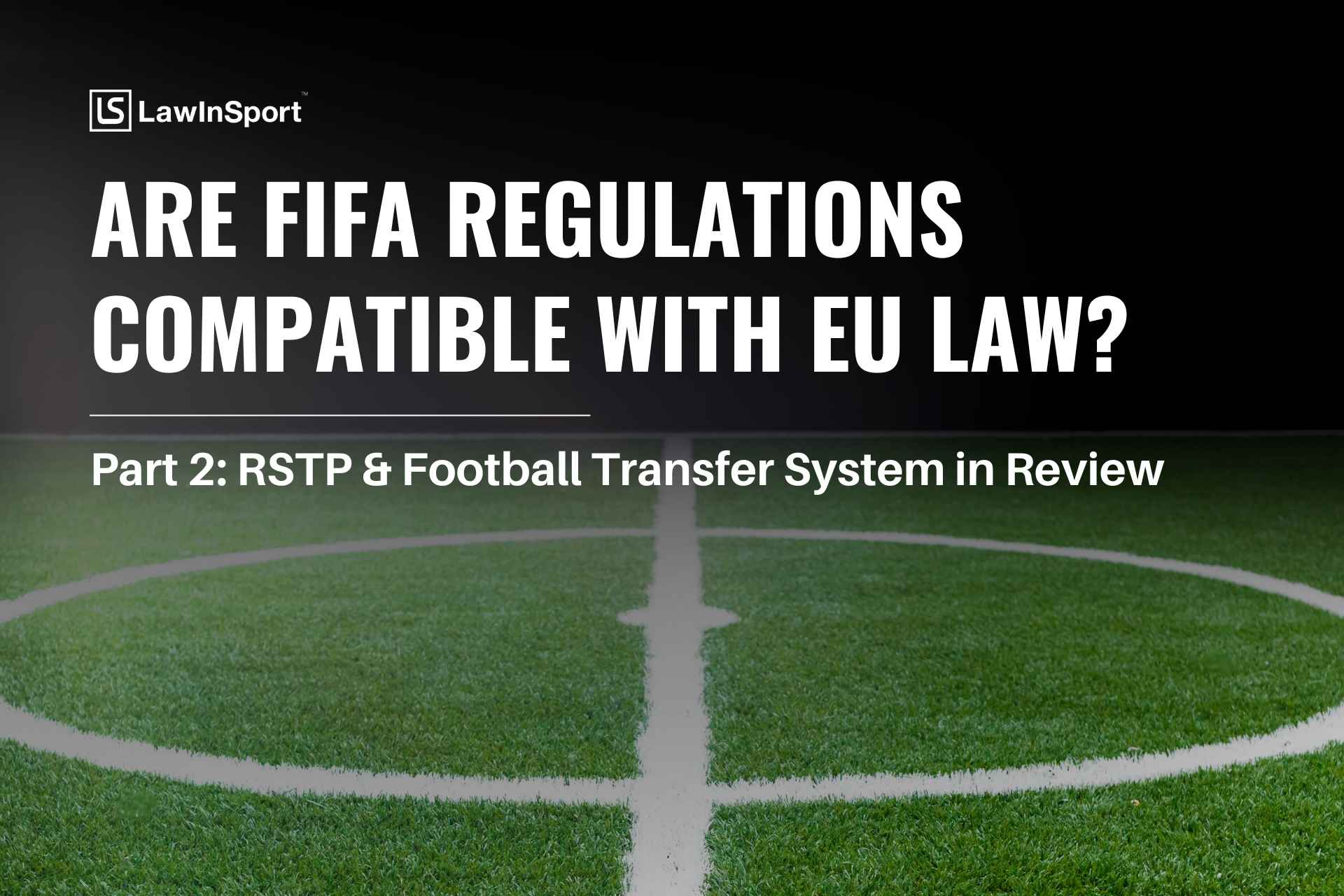
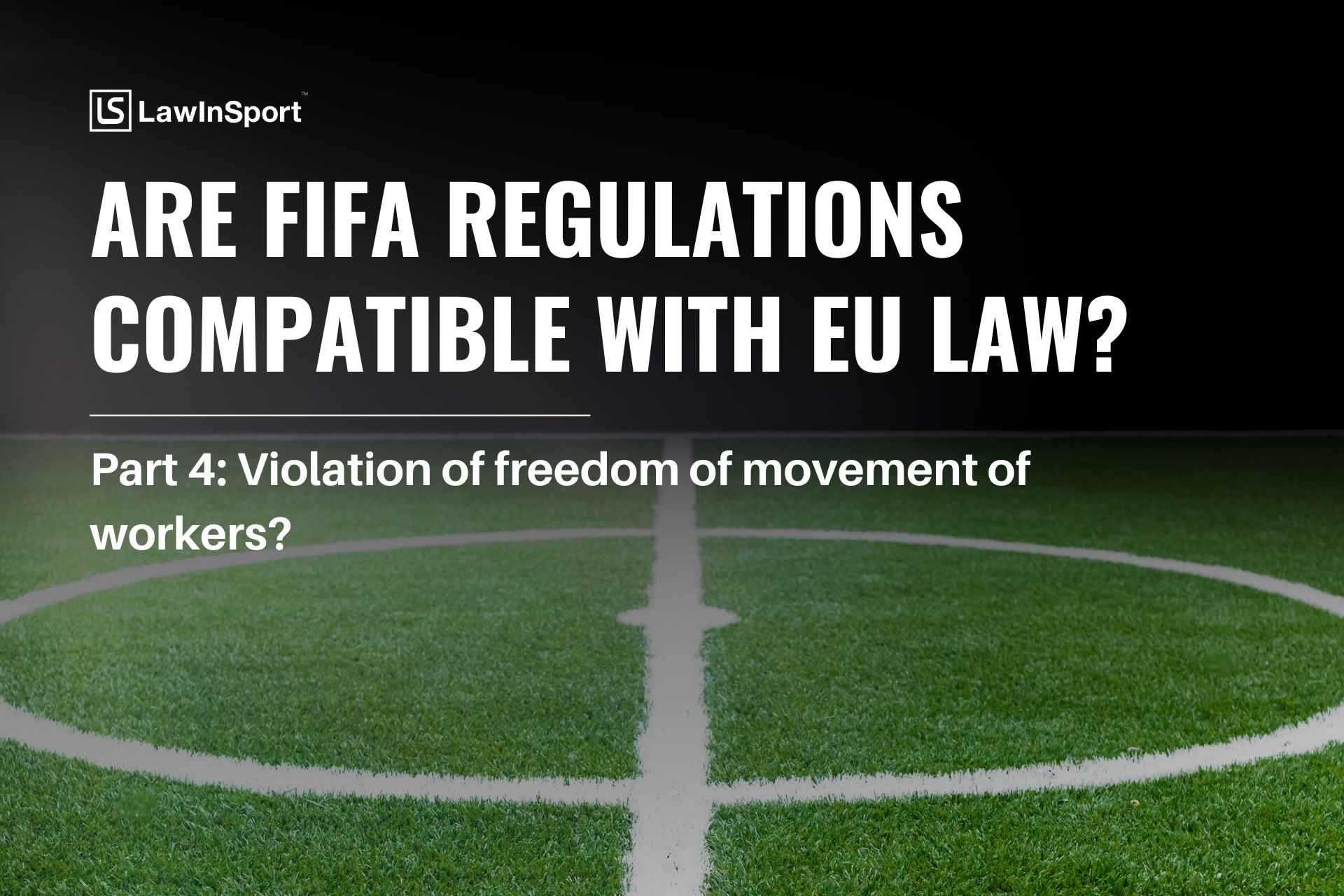
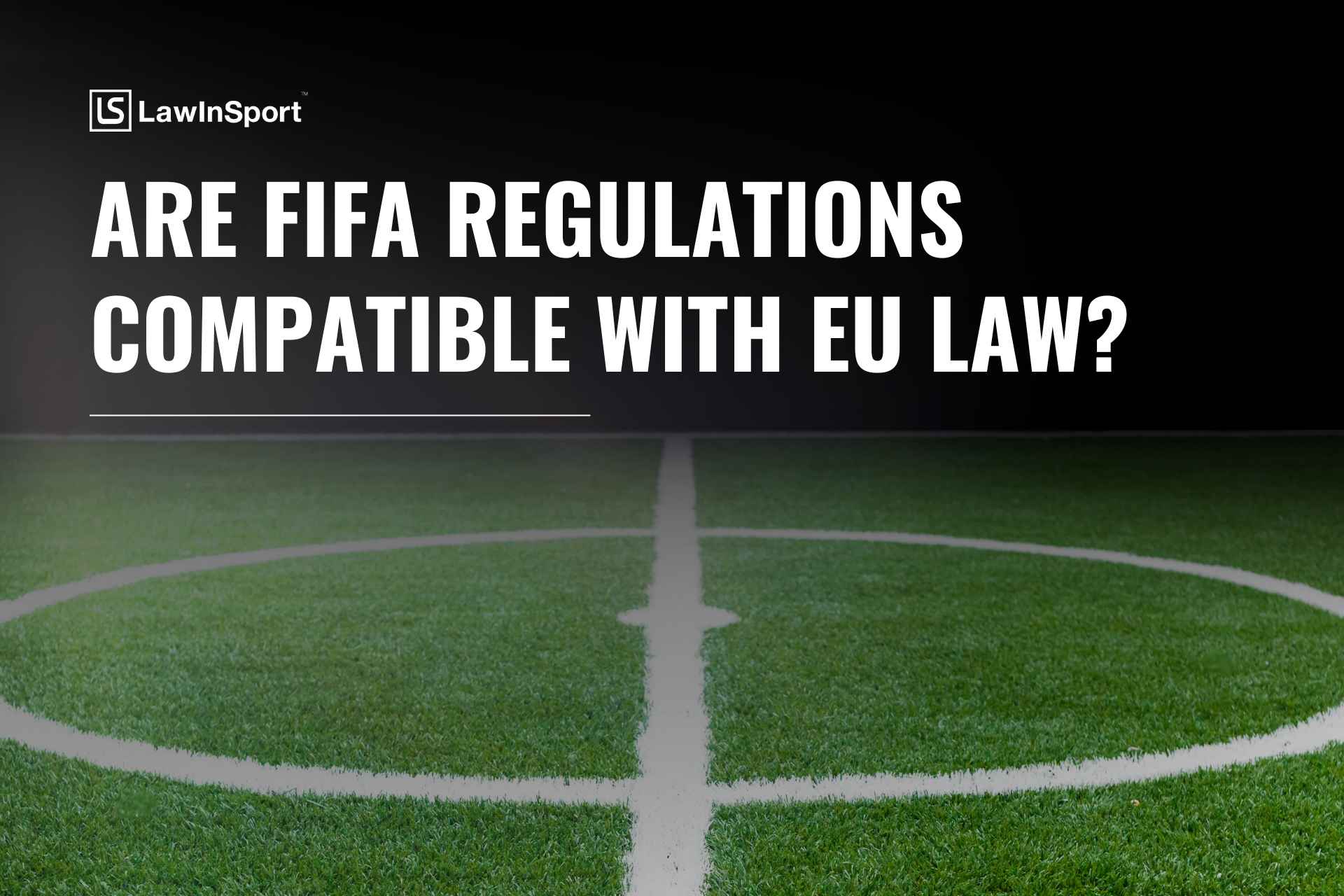
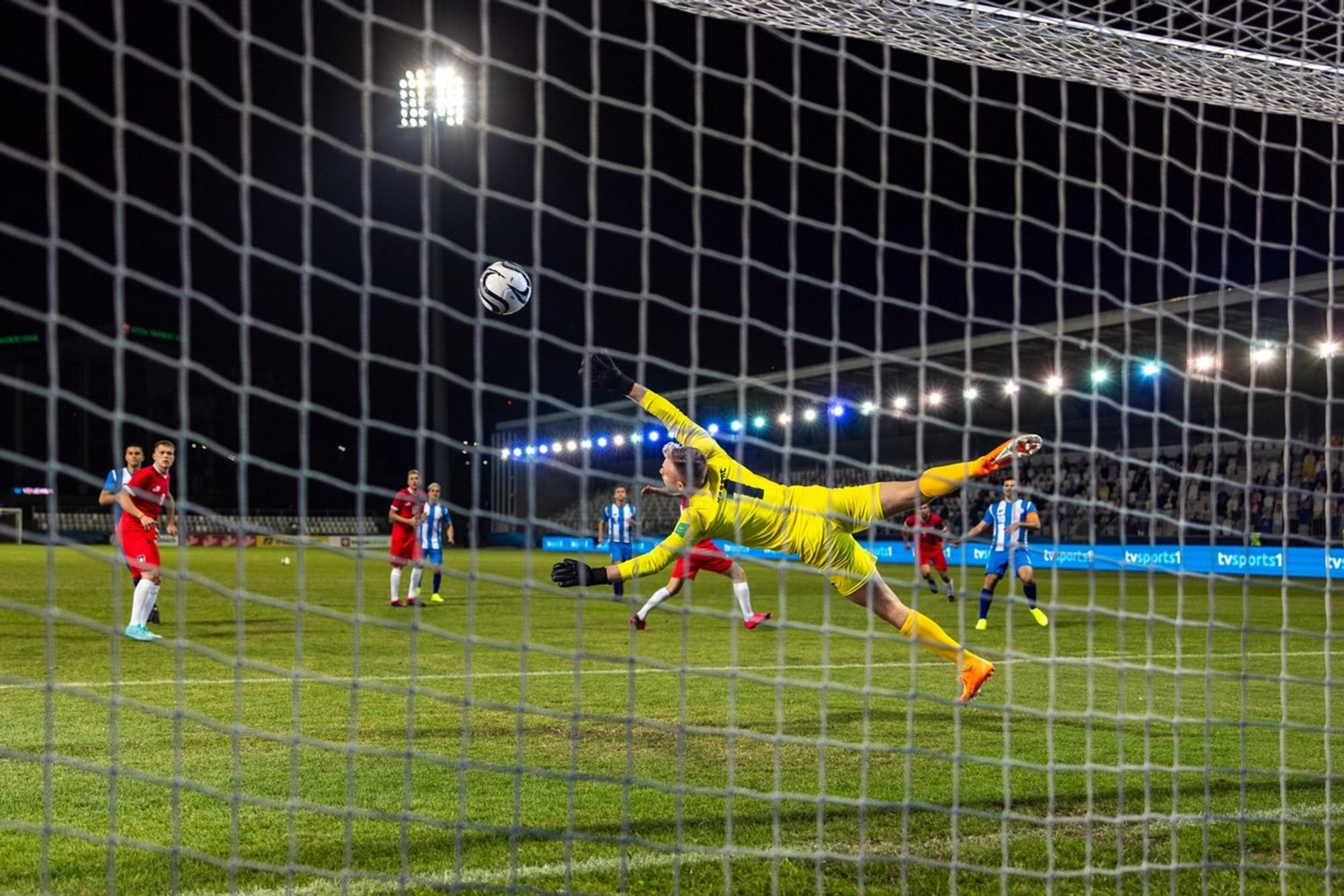
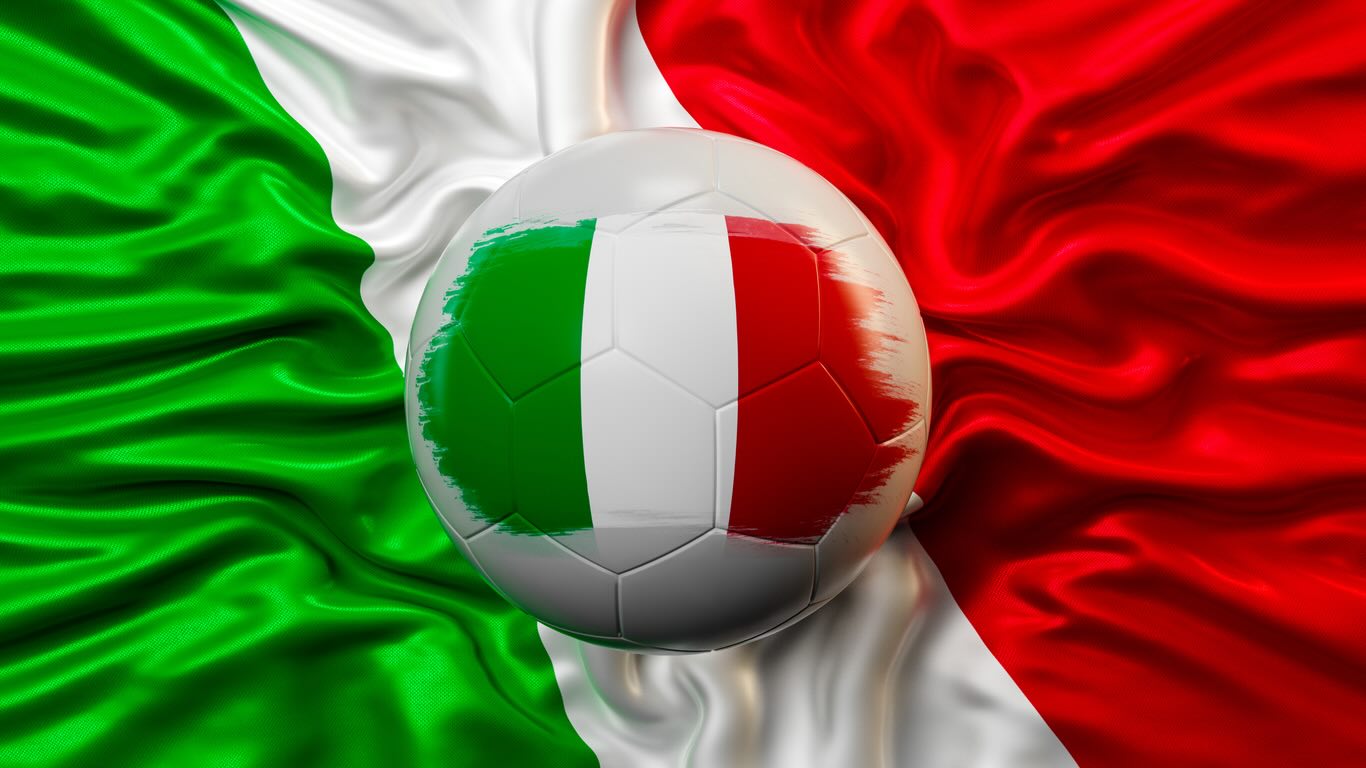
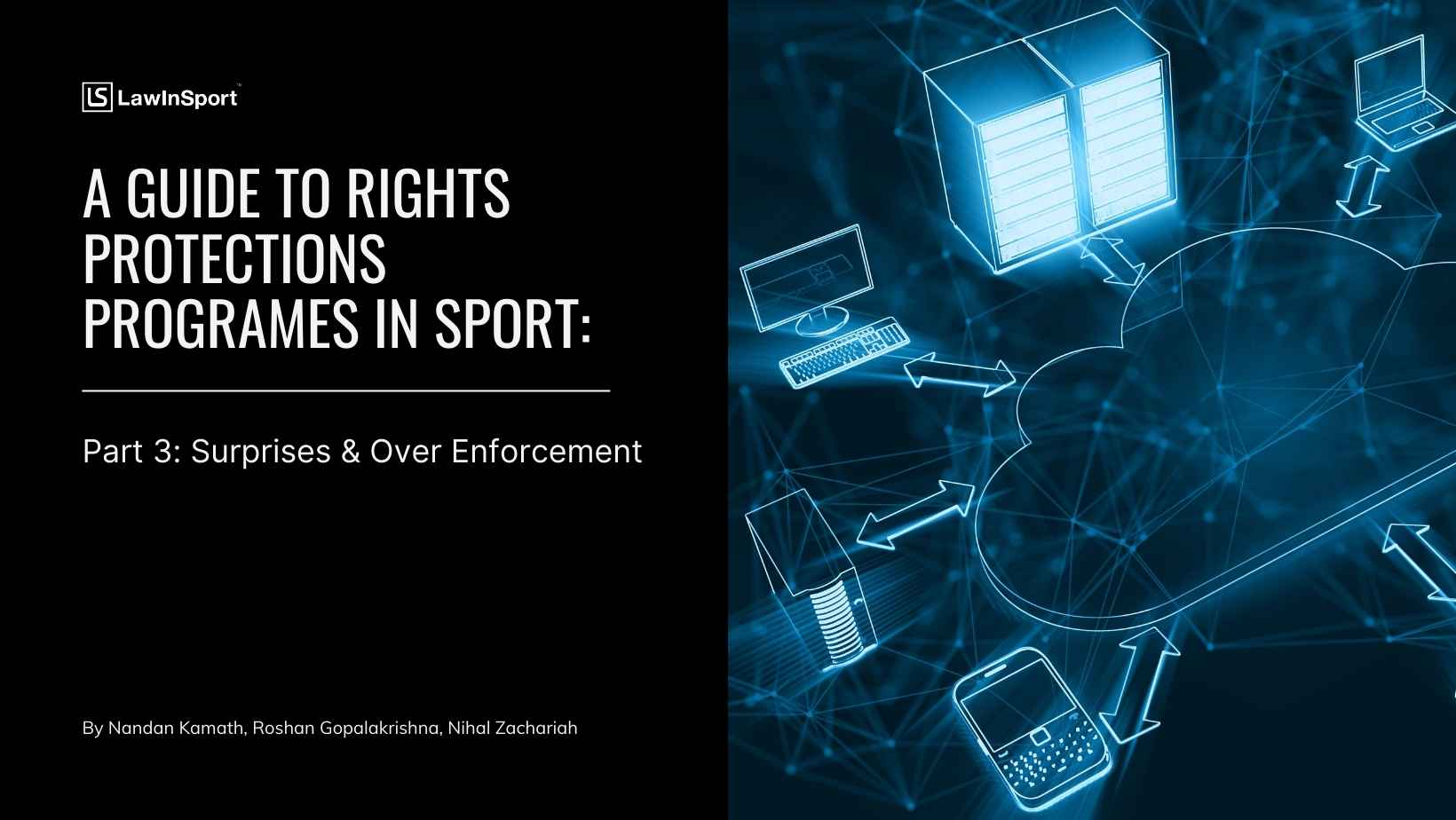
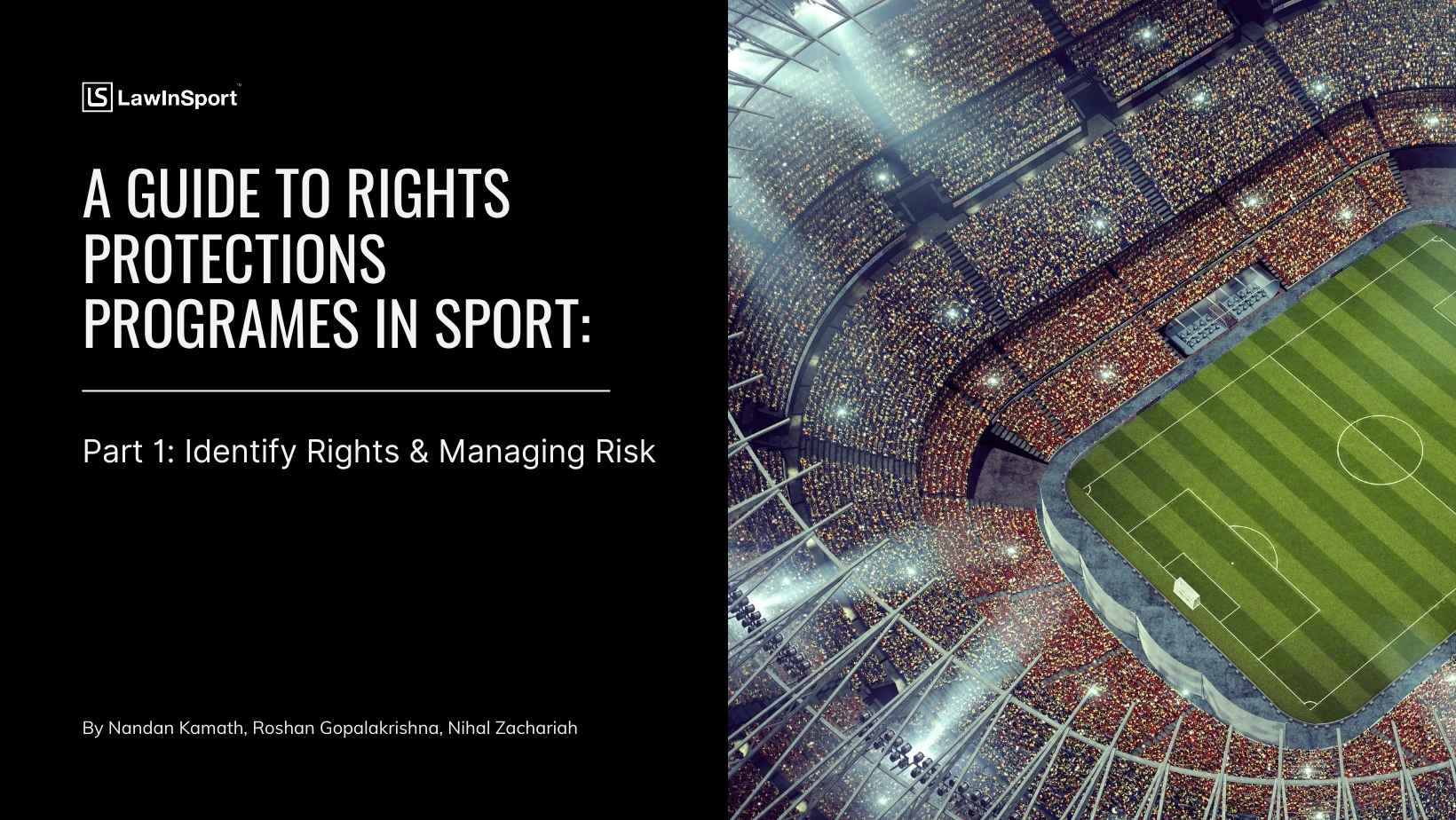
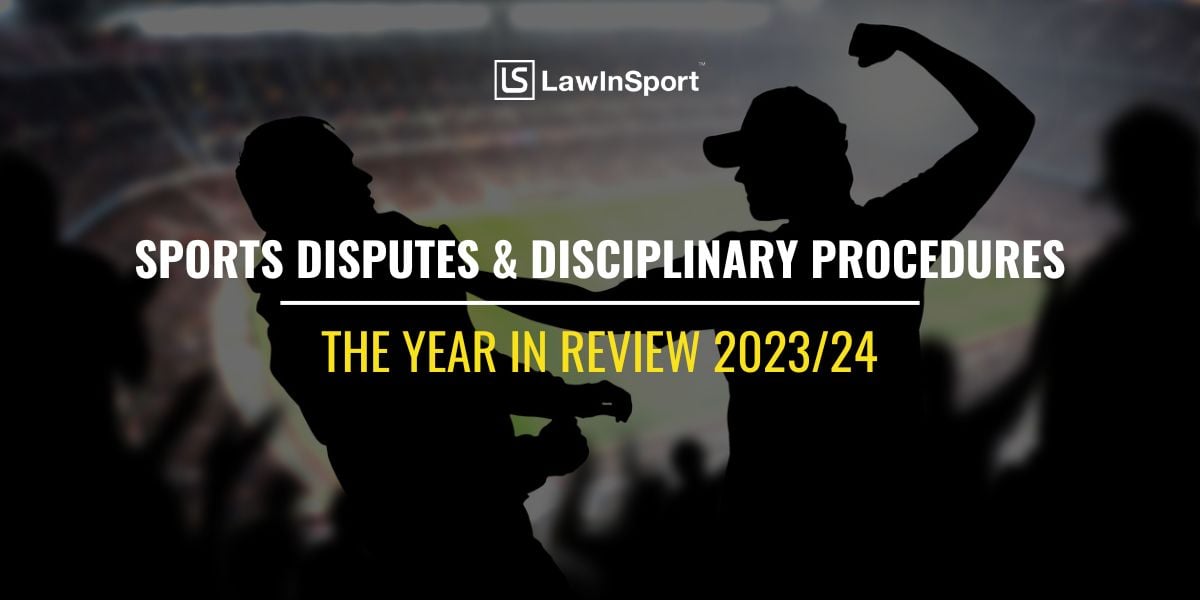





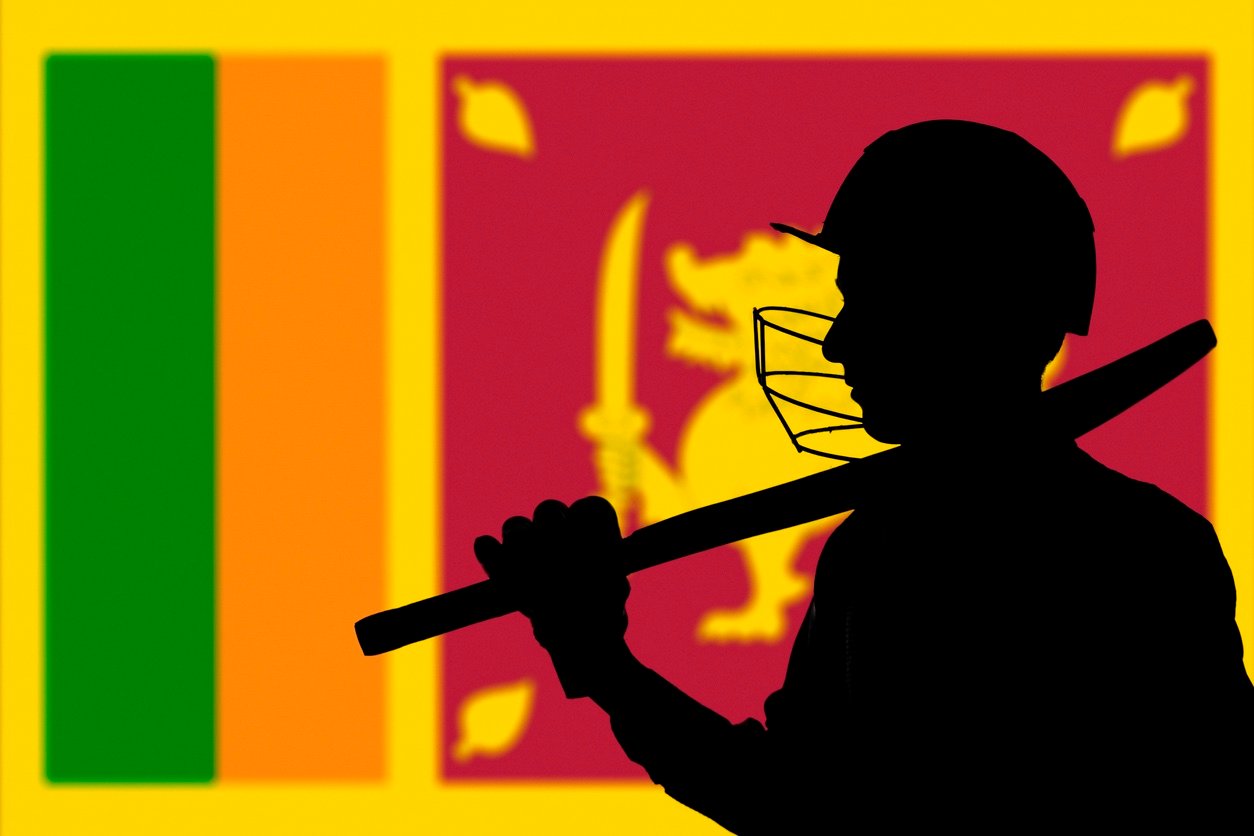



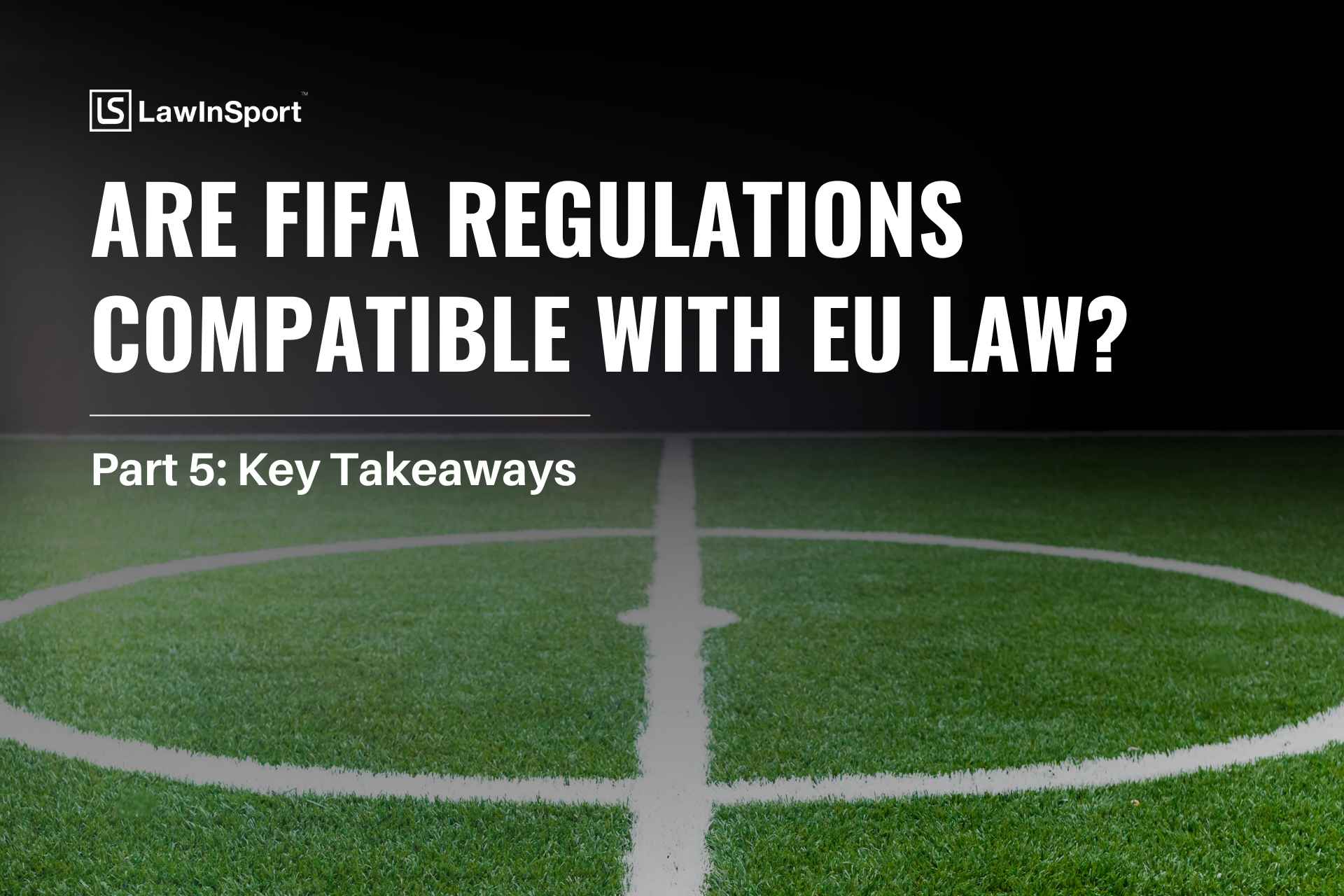



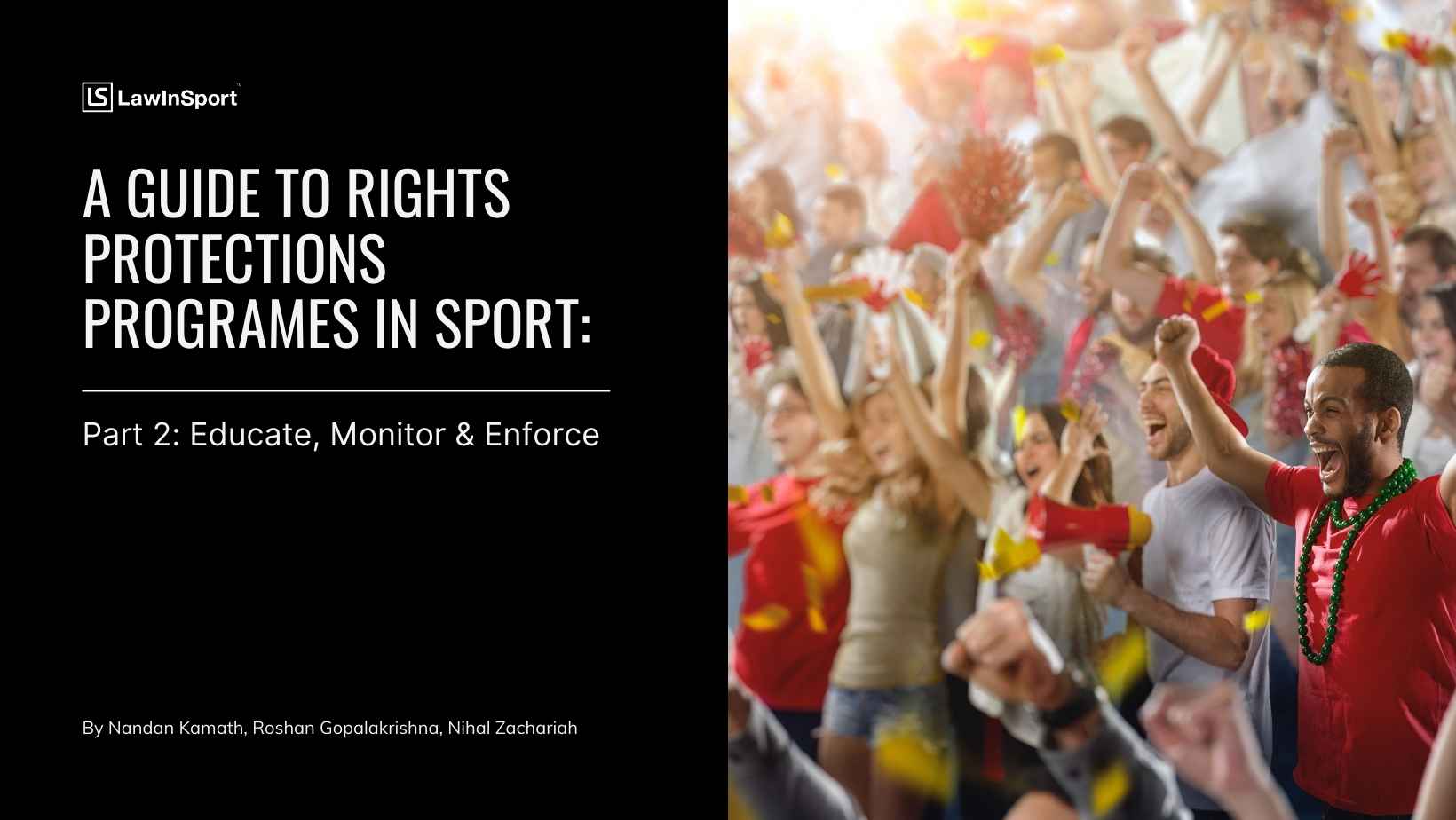
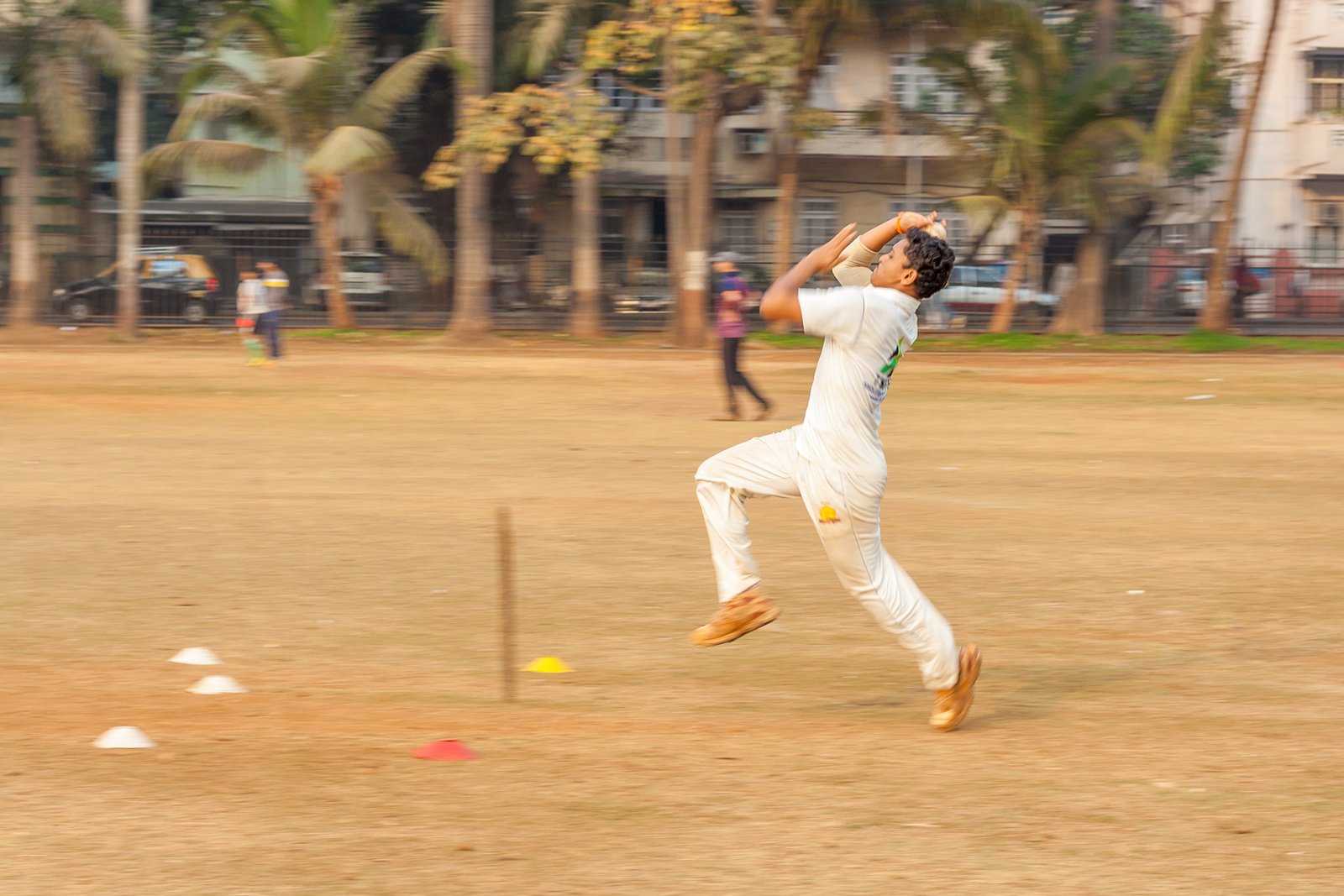

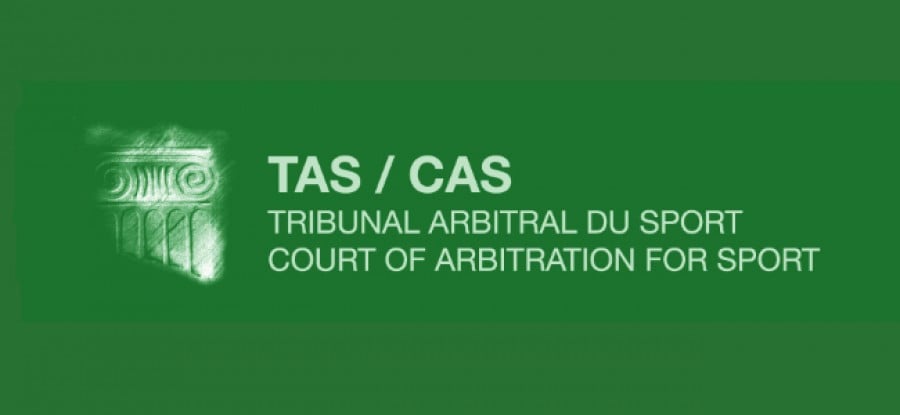




 Global Summit 2024
Global Summit 2024